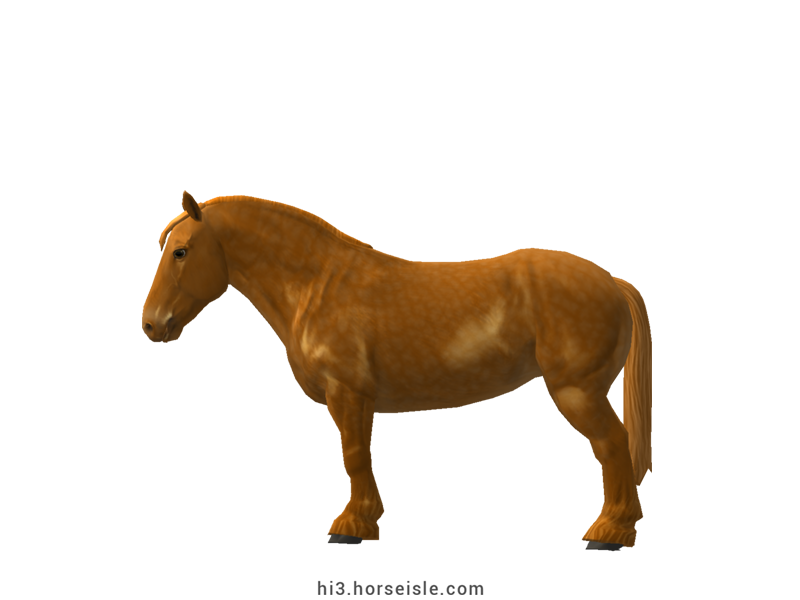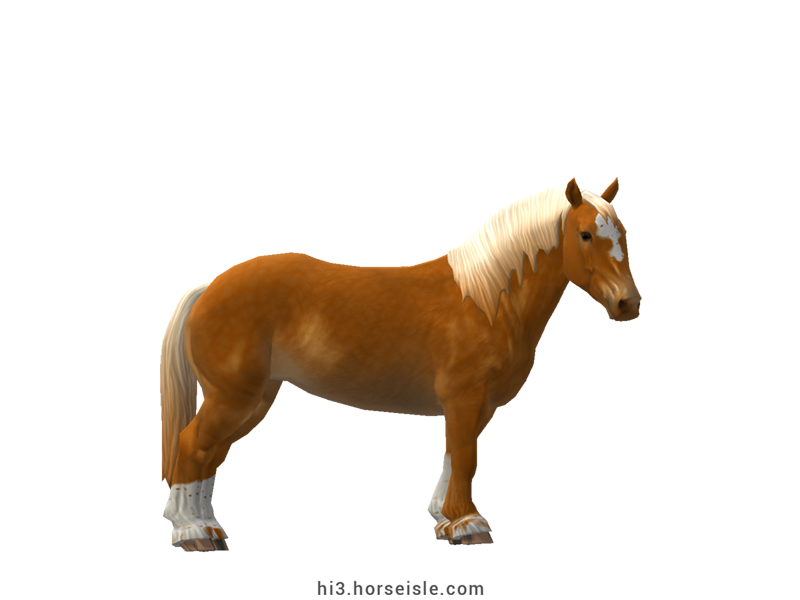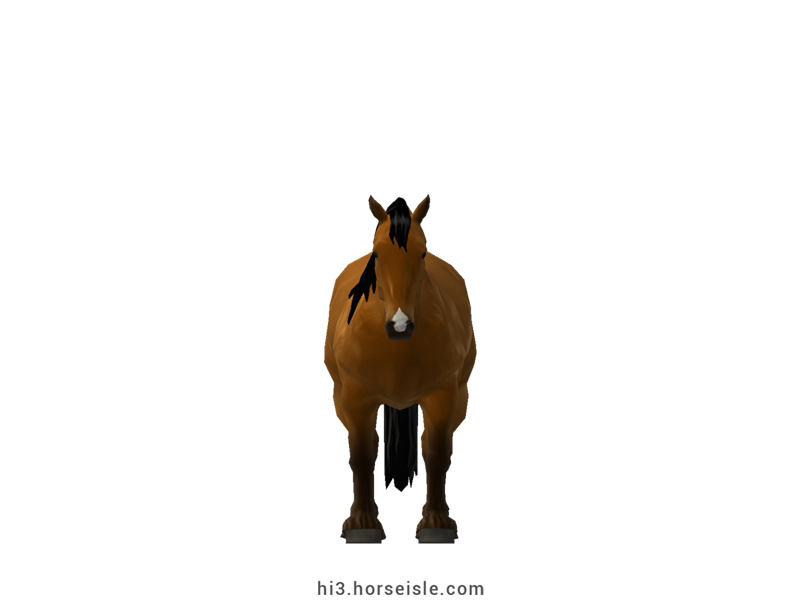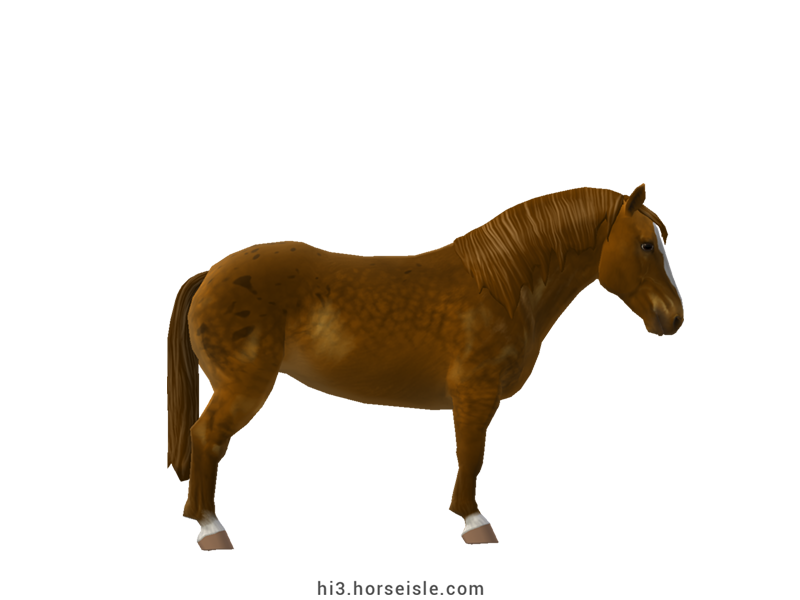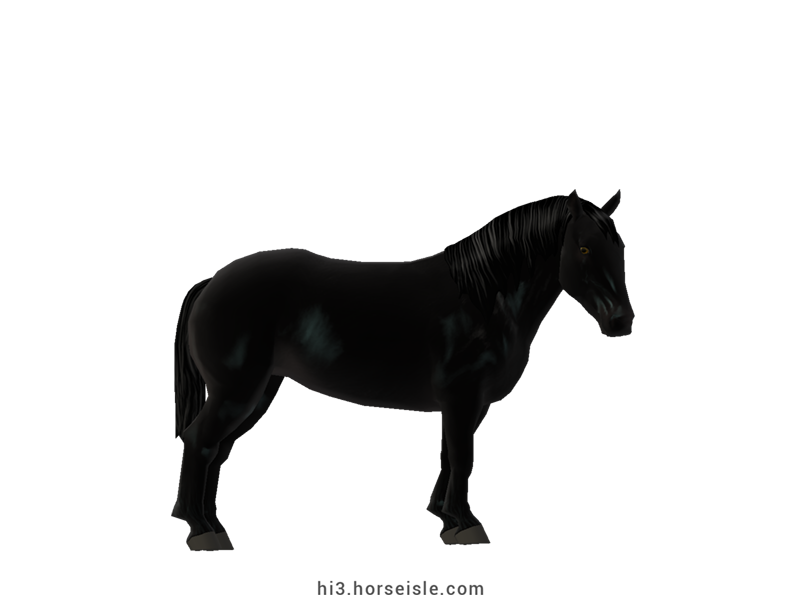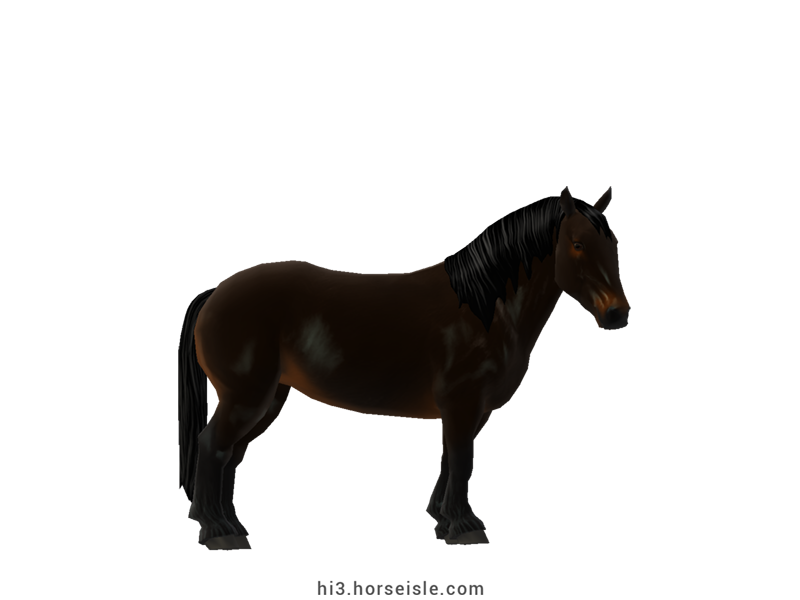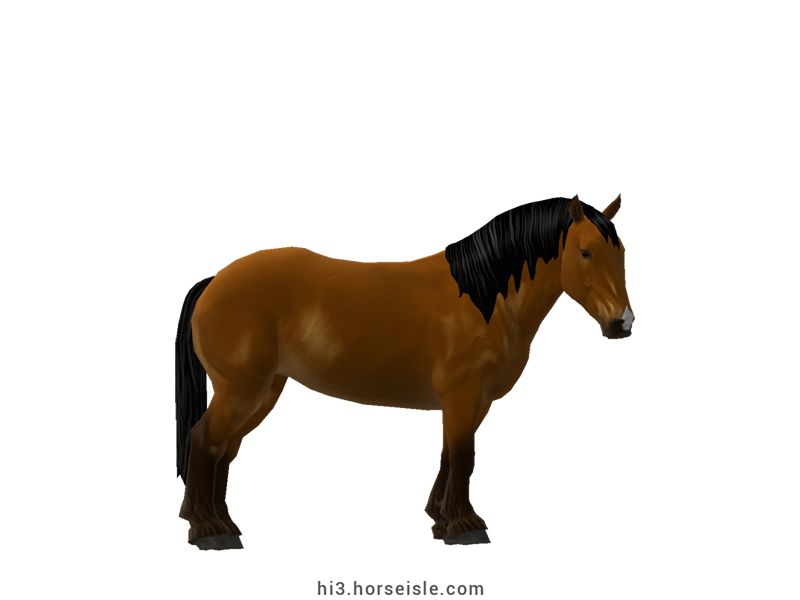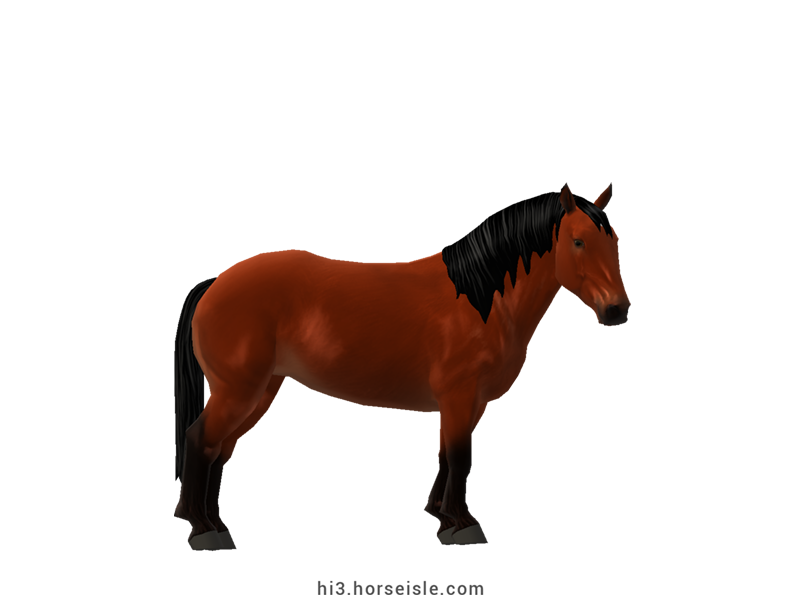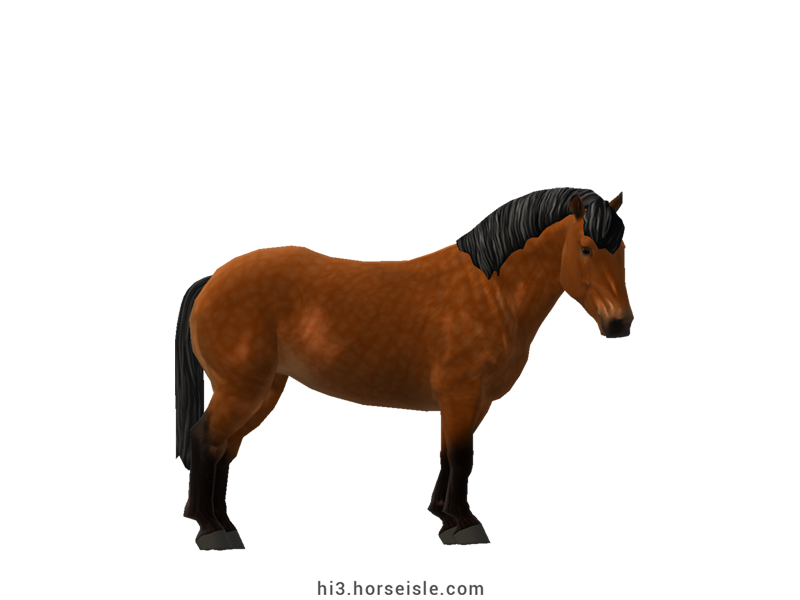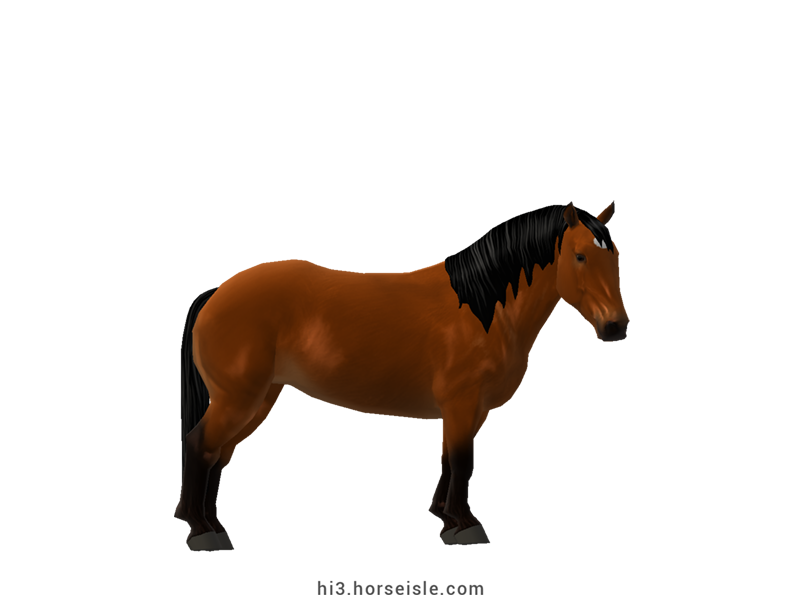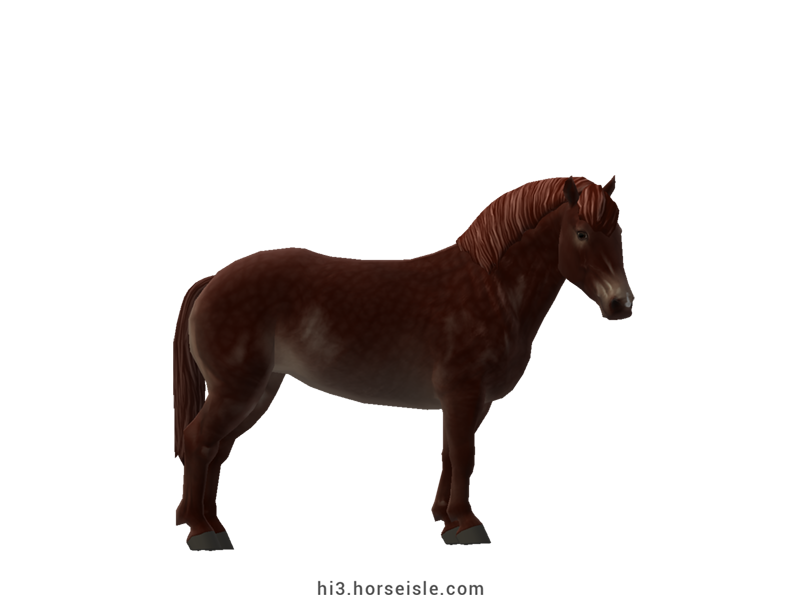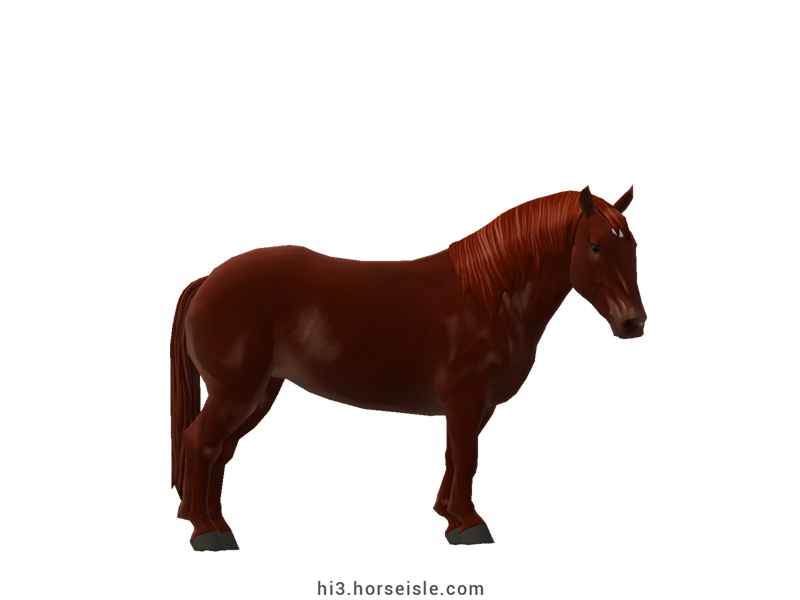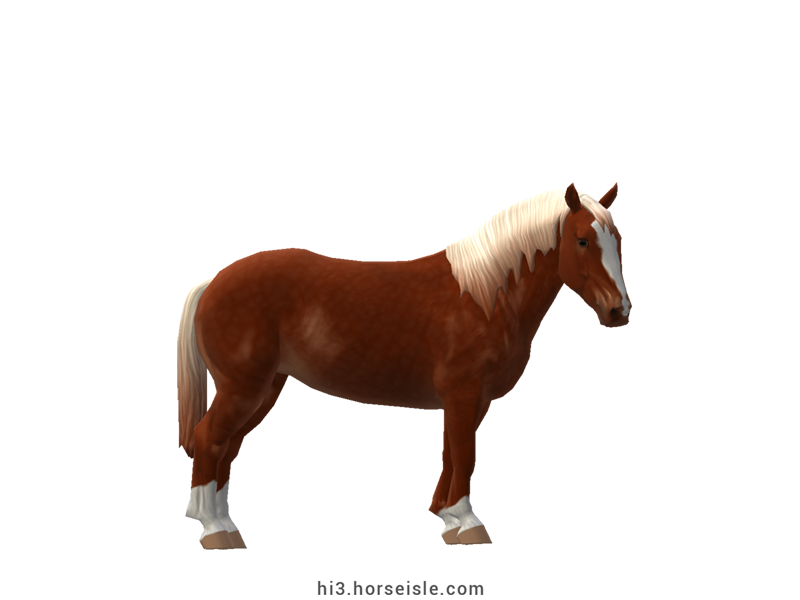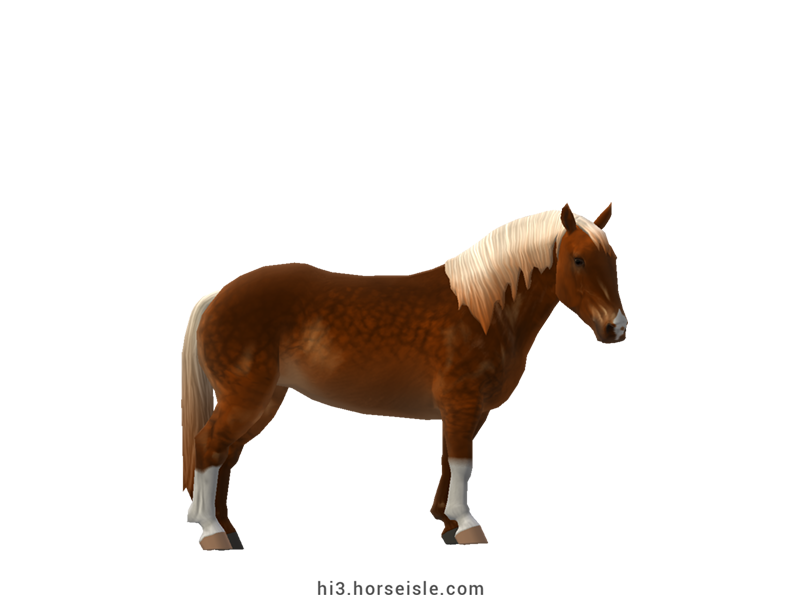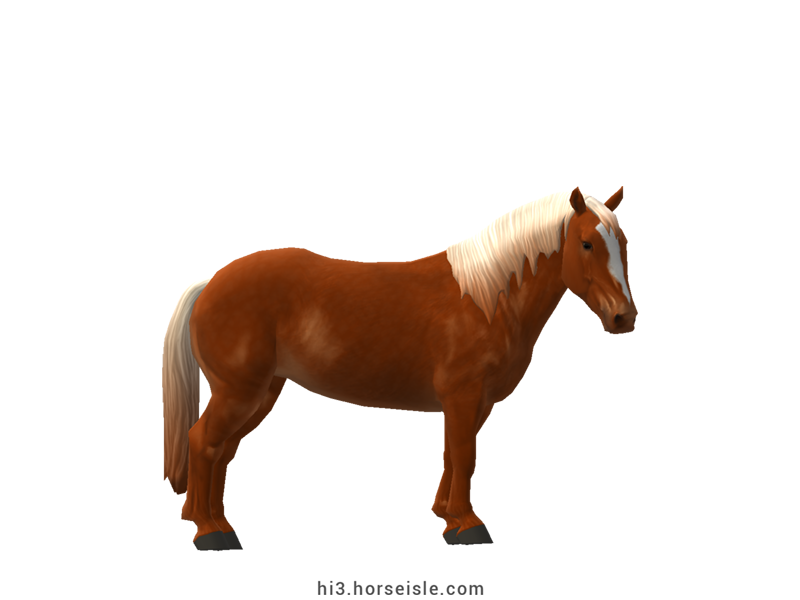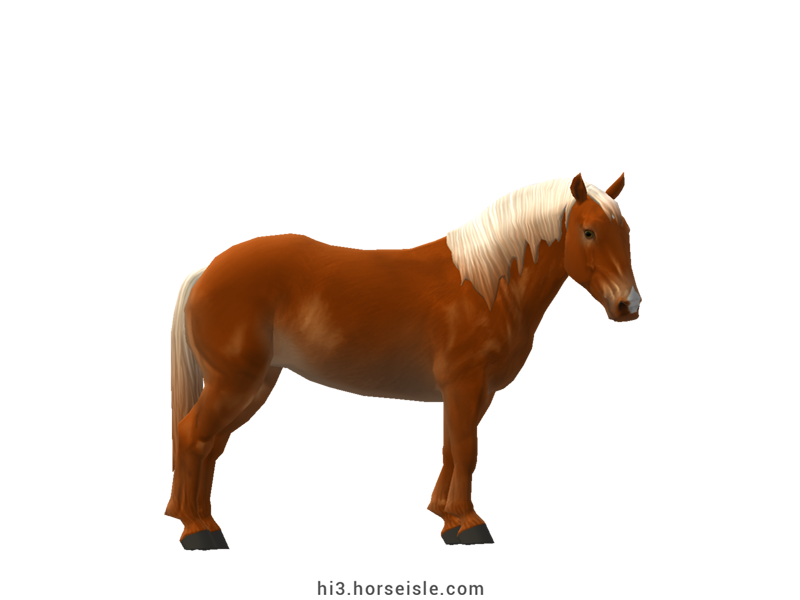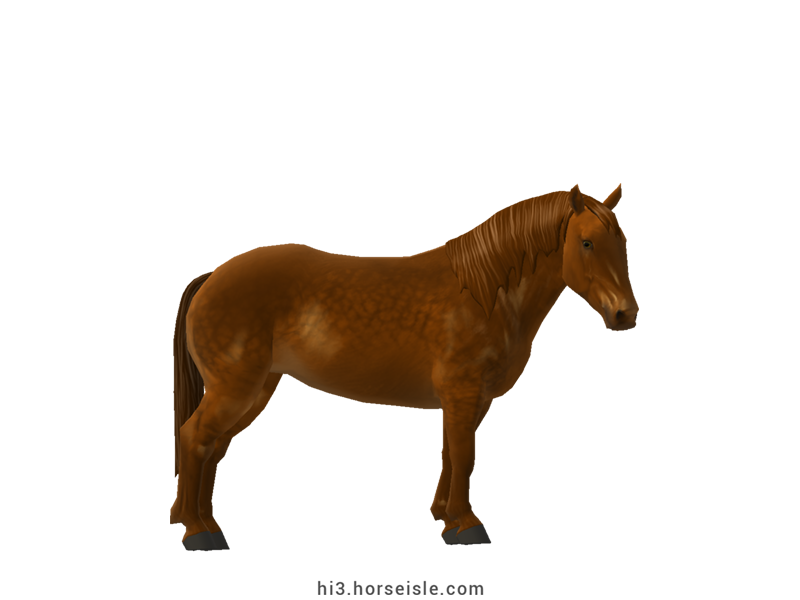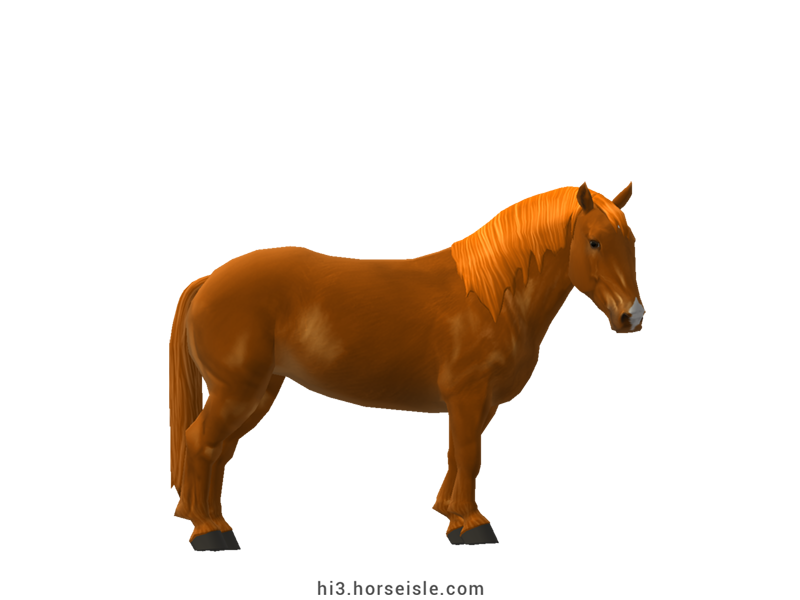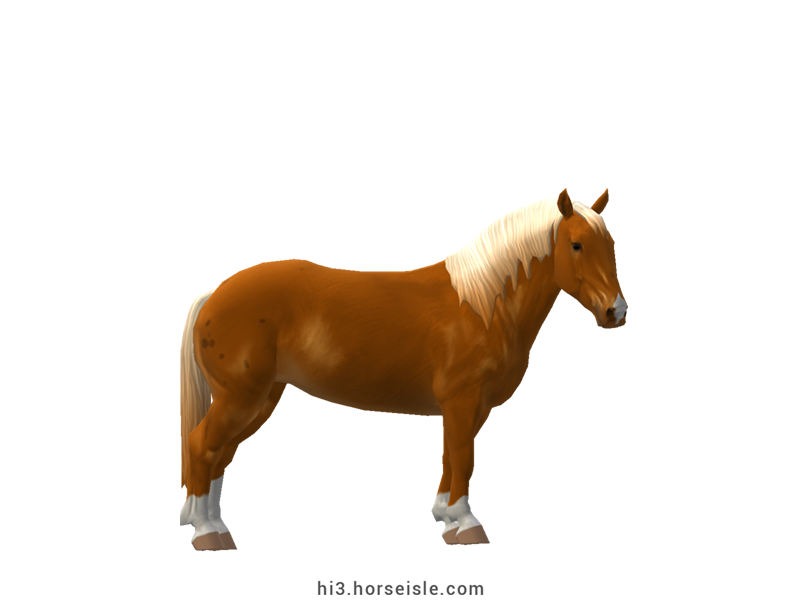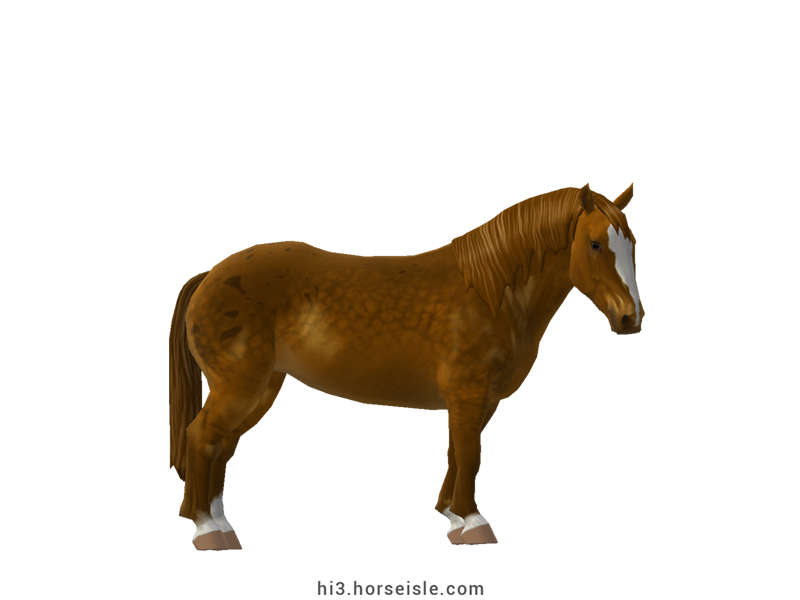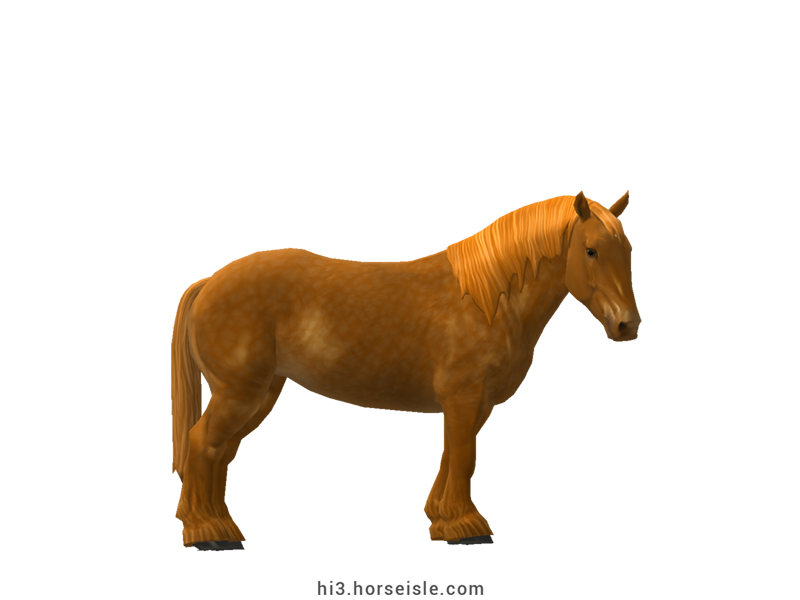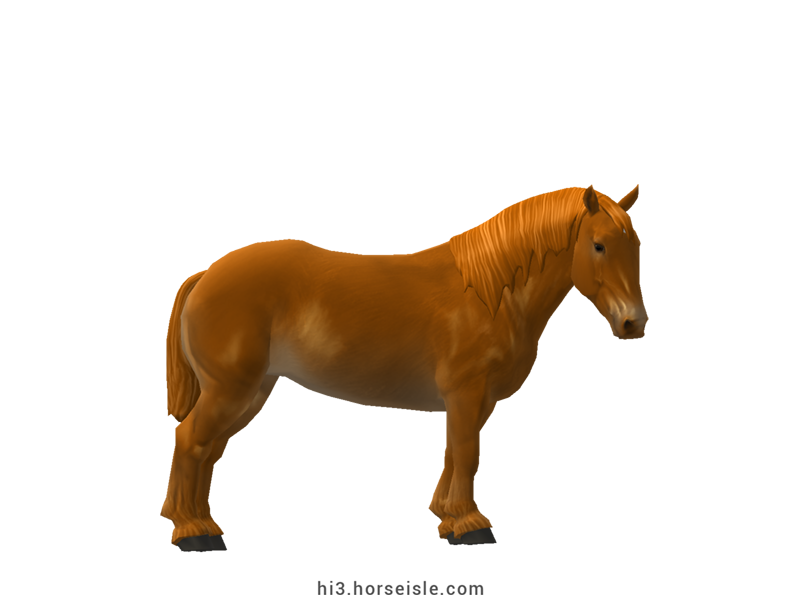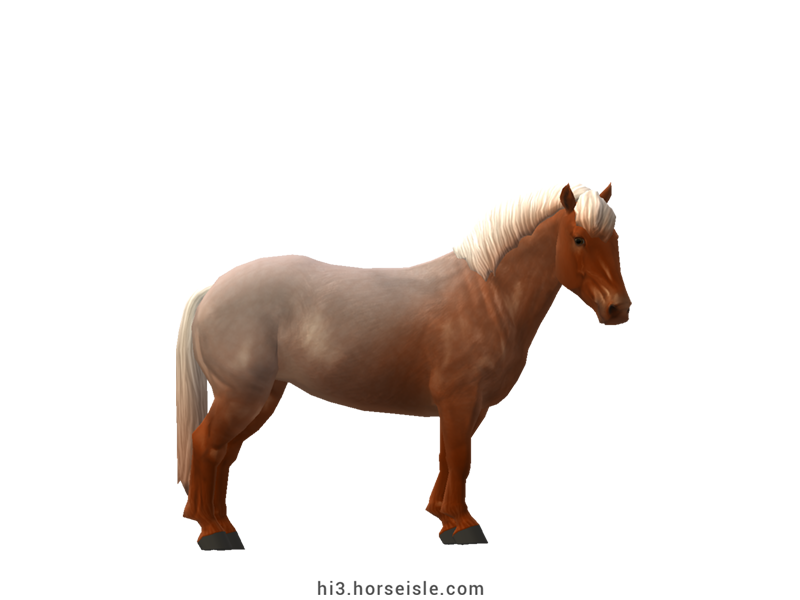Our Massive Real World Equine Reference!
[ INDEX ] Equine Type: Horse Breed: Polish Draft [ PREV ] [ NEXT ]
Origins:
Horses have been roaming Poland for many centuries and were essential to local agriculture. Although small in size, they were strong enough to work in the fields all the way up until the 19th century, when the heavy weight of newly invented agricultural machines called for the use of stronger draft horses.
Poland lacked horses of the necessary size, so Polish breeders imported heavy horses from other European countries, mainly Brabant stallions from Belgium and Ardennais stallions from France. Crossbreeding these breeds with the native Polish breeds continued all the way through the first half of the 20th century, and resulted in a heavy Polish draft horse.
The Polish Draft today:
Due to the mechanization of agriculture in the 1960s, Polish Drafts are not as common as they were in the past. That said, they still fair far better than other breeds of heavy drafts, and their population is stable.
Polish Drafts are still used for draft work in rural parts in Poland, but they are also used for recreational riding.
Subtypes of Polish Drafts:
Most other European heavy drafts--like the French breeds of Ardennais, Boulonnais, and Percheron-- are distinct breeds, each with its own studbook even if they originated in the same country. The Polish Draft is different in this regard, since it's an umbrella term for all the types of heavy drafts found across Poland.
There are several subtypes of Polish Drafts, each of which was primarily influenced by specific draft breeds, is bred in a specific county in Poland, is treated as a separate breed, and has its own studbook. Among these subtypes are the Garwolin, Luwicz, Lidzbarsky, Podlasky, Sokolski, and Stzumski. The latter two are the most popular ones, and are the only ones found in Horse Isle.
Conformation:
In general, Polish Drafts have a large head with small eyes and straight profile, a long and thick neck with a round topline and prominent crest, a long straight back, a muscular croup, a deep girth, short legs, and small hooves. The body is broad and muscular.
The legs have feathering which varies from light to heavy, depending on the subtype. The tail is anywhere from short to long, but the mane is always of medium length.
That said, each subtype has its own conformation standard; some are heavier or shorter while others are lighter or taller.
Performance metrics:
The following are the: range, average, (SD), and MOE of performance metrics of ordered Polish Drafts in Horse Isle (not bred ones). In rare cases,
Speed: 13.3-15.0, 14.2 (0.4), 0.08.
Sprint: 33-51, 42 (5), 0.92.
Accel: 0.84-1.07, 0.97 (0.05), 0.01.
Decel: 1.03-1.21, 1.12 (0.04), 0.01.
Jump: 4.62-5.01, 4.78 (0.08), 0.02.
Pull: 3.45-4.44, 3.87 (0.22), 0.04.
Turning: 52.80-66.63, 60.37 (3.08), 0.60.
Reverse: 2.2-2.9, 2.6 (0.1), 0.03.
Stamina: 56.99-63.38, 59.66 (1.32), 0.26.
Reaction: 0.77-0.87, 0.83 (0.02), 0.00.
Coats & Height:
Colors: usually chestnut, but also bay, brown, and, more rarely, black.
Additionals: flaxen, mealy, roan, sooty, grey mane & tail. The coat is always solid.
Height: 14.1hh to 16.2hh.
[ INDEX ] [ PREV ] [ NEXT ]

